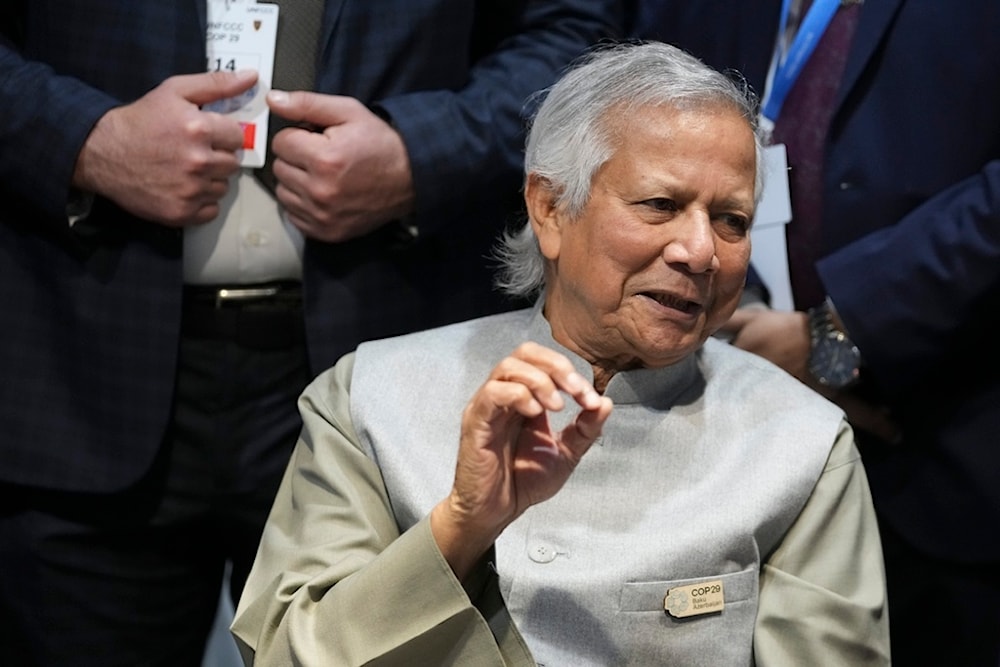Bangladesh's Yunus vows electoral reform as Sheikh Hasina faces arrest
Bangladesh's interim leader Muhammad Yunus vows accountability for those responsible for the violent crackdown during the July-August uprising that led to Sheikh Hasina's ouster.
-

Muhammad Yunus, head of Bangladesh's interim government speaks to members of the media at the COP29 U.N. Climate Summit, Wednesday, Nov. 13, 2024, in Baku, Azerbaijan. (AP)
Bangladesh's interim leader Muhammad Yunus addressed the nation on Sunday, marking 100 days since his appointment as "chief advisor" following a student-led revolution that ousted Sheikh Hasina after 15 years of rule.
The 84-year-old Nobel laureate appealed for patience as his temporary administration works to implement crucial reforms ahead of much-anticipated elections.
In his broadcast, Yunus acknowledged the challenges facing his government, including restoring democratic institutions in the South Asian nation of 170 million people.
He promised that an election commission would be formed "within a few days" but refrained from giving a specific timeline for elections, citing the need for comprehensive electoral and constitutional reforms.
"I promise that we will hold the much-anticipated election once the necessary and essential reforms are complete," Yunus said. "We aim to build an electoral system that will endure for decades. For this, we need some time."
Read more: Army chief pledges support for Yunus interim government: Bangladesh
Yunus also vowed accountability for those responsible for the violent crackdown during the July-August uprising that led to Hasina's ouster.
He confirmed engaging Karim Khan, chief prosecutor of the International Criminal Court, to address allegations of human rights violations.
Hasina Trial
Hasina, who fled to India via helicopter as crowds stormed her palace, faces an arrest warrant in Bangladesh on charges of massacres, killings, and crimes against humanity related to the suppression of the student-led protests.
She has been summoned to appear in a Dhaka court on Monday. Several former ministers from her government are also expected to stand trial.
Bangladesh has sought assistance from international bodies to facilitate Hasina's arrest and extradition.
A special tribunal requested Interpol to issue a red notice for her arrest, aiming to mobilize international law enforcement support.
Read more: Two new murder cases filed against former Bangladesh PM
Crisis Group analyst Thomas Kean described Yunus's task as "monumental," warning of potential instability if the interim government fails to deliver reforms.
"For now, Yunus and his colleagues have widespread support, but popular expectations are double-edged," a recent think tank report noted.
"If the interim administration falters, the outcome could be an early election with little progress; in the worst-case scenario, the military could assume power."

 3 Min Read
3 Min Read








